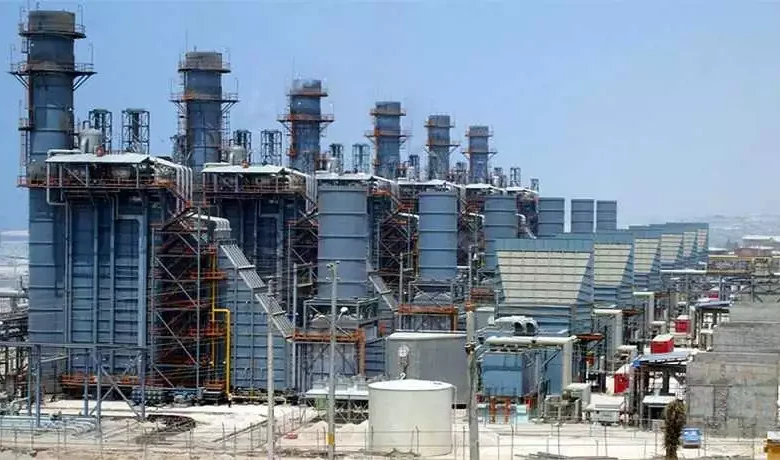The Center of Investment Institutions demanded the cancellation of the increase in industrial feed rates – Tejaratnews

According to Tejarat News, the Secretary General of the Association of Financial Institutions today, in a letter to the First Vice President, demanded the annulment of the decision to increase the feed rate.
The increase in the gas ceiling for industries and petroleum refining companies and the approval and notification of this important decision became a big margin in the recent days of the stock market, when Rasul Saadi, the Secretary General of the Iranian Financial Institutions Association, on behalf of 600 financial and investment institutions, in an action Importantly, he sent a letter to Mohammad Mokhbar, the first vice president of Jamour, which is at the heart of this challenge.
According to this report, he announced 6 points in this approval letter and by requesting the immediate cancellation of the approval and return to the previous status of the feed rate, it was proposed to re-examine the issue in a joint working group of industry experts and stakeholders.
The text of the letter of the Secretary General of the Iranian Financial Institutions Association to the First Vice President
Dear Dr. Mokhbar
Honorable First Vice President
Subject: Regarding the increase in the feed rate ceiling for petrochemical and industrial gas
Greetings and Regards
According to the recent approval of the honorable government board regarding the increase in the feed rate of petrochemical and industrial gas, Iran’s investment institutions center, relying on the expert body and in line with its inherent duty to facilitate investment and more importantly, play an active role in the country’s growth and development After examining the effects of Sadr al-Ashara’s resolution, your Excellency’s attention is drawn to the following:
1) One of the most important requirements for increasing investment in an economy is predictability and relative certainty regarding future events. Since the issue of industrial feed rates has been one of the most important challenges facing investors for years, defining a specific mechanism for a multi-year time frame is one of the prerequisites for improving the investment climate and capital formation. Therefore, it is expected that this issue will be resolved once and for all for investors.
2) One of the consequences of applying this policy is a significant decrease in the profit of the petrochemical industry and even the loss of some gas feed petrochemicals (methanol and urea), as well as jeopardizing the financial status of petrochemicals and steel plants that have just been put into operation and reducing the motivation for new investment in petrochemical industries. and oil and steel refining, all of which are contrary to the policy of supporting production and resistance economy.
3) The price increase policy on the petrochemical industry and oil refining indicates the negative impact of this policy on the capital market due to the reduction of the relatively large profit margin of petrochemical companies (especially gas feed petrochemicals) and oil refining, considering the significant value of petrochemical companies’ shares. , refining and steel offered in the stock exchange (about 60% of the market value).
4) Industries that are affected by the recent gas price increase (petrochemical, oil refining, steel and cement) have a special and high share in the equity shares and investment portfolio of pension funds. Considering the disharmony of these funds and the reduction of their support ratio, the reduction of the mentioned profit margin can lead to the aggravation of this disharmony and weakness in their ability to pay their obligations.
5) The formula determined to determine the feed price of natural gas for petrochemicals, which was determined in January 1994, is a function of the prices of existing hubs in North America and Europe. Due to the increase in gas prices in Europe over the past two years, the competitiveness of Iranian companies has decreased. In response to this issue, the government decided to set a price ceiling for the feed rate of industries and petrochemicals, which is reviewed every year and has led to a decrease in the profit margin of industries.
It should be noted that connecting the price of Iranian gas to the price of international hubs, especially European hubs that consume and import natural gas, does not seem logical. Also, the mandated price of petrochemical gas in the Persian Gulf has caused the price of Iranian petrochemical gas to be more than 3 times the wholesale gas price of the Middle East and 2.5 times the gas price of gas exporting countries in 2021 and 60% higher than the price of North America. Therefore, it is suggested to determine a formula in order to maintain the competitive ability of Iranian producers with companies active in other gas producing countries in order to obtain the maximum value from Iran’s relative advantage in benefiting from gas resources.
6) Making the economy competitive at the international level, economic growth and development is possible through the strengthening of large companies with the ability to compete in global markets. The recent decree weakens the competitiveness of large companies, lack of modernization of industries and decrease in capital formation, and causes the decline of investment in the country.
In the end, it is suggested that the recent resolution of cancellation and the status of the feed rate should be returned to the previous state, and any new decision should be re-examined in a joint working group of industry experts and stakeholders, and the necessary proposals should be presented for approval. Therefore, this center is ready to actively participate in relevant specialized meetings and participate in expert discussions related to industry and capital market.
Source: Stock Exchange

